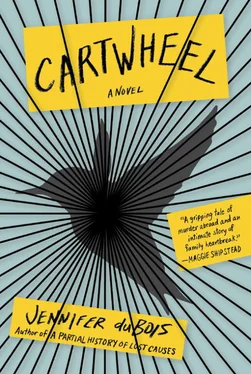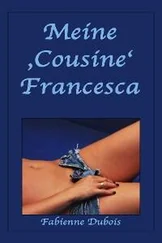Eduardo stepped into the street, and a motorcycle whizzed by him. He leaped out of the way, swearing, and fell sideways onto his knee.
“Cabeza de pija!” he bellowed. The kid was already half a block away and did not turn around—only dug his knee into the bike, as though it were a sentient creature that could actually respond to him. Eduardo hated, hated, the motorcycles. Syncopated waves of new objects were always flooding the country, responsive to the lifting of this or that trade restriction—Eduardo woke up one day and everyone suddenly had a BlackBerry, or were standing in lines that snaked around corners in order to buy a flat-screen TV, or had a fucking motorcycle. Sometimes Eduardo could understand the appeal of living in a closed neighborhood—just pulling your arms over your head and trying to wave away history’s vicissitudes. He straightened out his knee. It was decidedly—perhaps a bit disappointingly—undamaged. He stood up. He could feel his whole body shaking. The rest of the walk home, he favored his knee a bit more than he really had to, for the benefit of anyone who might have been watching.
When Eduardo reached the apartment, he stood in the doorway for a moment. Since Maria’s return, he had become accustomed to taking the temperature of a room before he entered it; today, he could feel the low ebb of the apartment’s energy. The kitchen was mostly dark. In the few strands of vermiculated light coming through the window, he could see that the small mess from breakfast was still sitting on the table; the coffee was still stewing, now cold, in its pot.
The one remaining problem with the case, as Eduardo saw it, was Sebastien LeCompte. The alibi he provided for Lily was deeply nebulous, and he was not a person any judge would be inclined to trust, even with a far better story. Nevertheless, Toledo’s account—with its multiple acts and multiple locations—would be harder to square with Sebastien LeCompte’s testimony than a simpler narrative might have been. It was easy enough to believe that Lily had left Sebastien for an hour or two without his knowledge; four or five hours—which is what Eduardo feared Toledo’s story implied—would mean that the panelists would be forced to decide that either Sebastien LeCompte was lying or Ignacio Toledo was. And LeCompte and Toledo struck Eduardo as about equally disingenuous seeming; really, you might as well flip a coin between them. Eduardo switched on the light.
“Hello,” said Maria. She’d been sitting on the couch, perfectly still, and had not spoken when he entered the room. “Did I startle you?”
“No.” She had, but Eduardo never physically startled.
“I went to church today,” said Maria. “I wanted to visit your pal.” She meant Jesus. Eduardo was wary of this topic of discussion. Maria’s firmest and lowest opinion of Eduardo centered on the myth of his blind religiosity and—in part because she seemed to enjoy it so much—he had long since given up trying to explain his actual feelings on the matter.
“I hope you communicated my regards,” said Eduardo, pouring out the coffee. He flexed his knee again and felt a vaguely satisfying pulse of pain. Those fucking kids.
“Oh, I didn’t have to,” said Maria.
Eduardo turned on the faucet. He believed in God in the same way he believed in his own consciousness; Eduardo would no more have tried to prove that he actually felt God’s presence in his life than he would have tried to convince someone that he actually heard his own inner monologue running through his head. He would have liked to explain some of this to Maria, but she was not a very good listener when it came to such things.
“He knew all about your regards already,” said Maria, in case Eduardo hadn’t gotten it. “I mean, obviously.”
Eduardo dislodged a plate from its swamp of waterlogged rice. He was glad that Maria had left the dishes; he could pretend not to hear her when the water was running.
“It’s funny,” said Maria, “that people talk to God so much, when He’s the one person who you shouldn’t have to explain anything to.”
“Mmm,” Eduardo said. He was trying very hard not to argue. It was atheists, he often thought, who were the true fundamentalists—forever trapped within their own limited circuit, utterly without humility, smug in the laughable confidence that the universe was somehow specifically set up for human understanding, like an algebra problem designed to be challenging but reasonable for a particular age group. How did that idea not undercut its own argument, while being hopelessly unimaginative and narcissistic at the same time? But there was no point in saying any of this. When Maria got in this mood, there was no point in saying much of anything.
“People think that’s true of lovers,” said Maria, “but it’s not. Right, Eduardo?”
He turned off the water and grabbed a dish towel. There were a few options before him now, and he ran through them. He could remain silent, which would only provoke Maria to keep talking. He could say something conciliatory, which would have no effect, or something withering, which would either sate or excite her. Or he could gamble on something silly—make a joke, flick water at her, try to create a hallucinatory, wavering moment in which she might still decide she didn’t feel like fighting.
“But people like to tell God everything,” said Maria. “He must get bored listening to all of those thoughts.”
Eduardo handed her a dish to dry.
“Even yours, Eduardo,” she said, swiping at it feebly. “Do you think you’re ever boring our Lord? Do you think He’s ever just pretending to listen? Just trying to be polite?”
Eduardo had decided what to do. “Not everyone can be as patient as you are,” he said. He kissed her on the forehead for good measure—once begun, it was important to really commit to appeasement—and was relieved when Maria laughed merrily. It had worked.
“Oh, Eduardo,” she said, drawing her hand to her cheek. “I’m a nightmare. I don’t know why you put up with me. Oh!” She clapped her hands and went to the couch. “Did you know you were in Clarín today?” She produced the paper from the sofa cushions and handed it to him. The article was a profile. It had been written and researched months ago, its publication endlessly deferred. But now here it was, resurrected at last, occupying a respectable square chunk of the page. Eduardo glanced at the photograph accompanying the article. Through some strange newspaper sorcery, it made Eduardo appear far more handsome than he was in real life.
“Did you read it?” said Maria.
“Not yet.” Eduardo stared at the photograph. It was a weird trick of angling or light, he thought; it gave the completely wrong impression of his face. And in giving the wrong impression of his face, it seemed to give a wrong impression of his entire life—nobody with that face could ever be as lonely and as heartbroken as Eduardo had so often been.
“They make you sound so smart,” said Maria. Like all of her compliments, this one was slightly askew and, like all of her compliments, Eduardo was happy to have it.
“Thanks,” he said, giving the photograph one last look. It felt fraudulent, embarrassing, somehow, to see it. He almost wanted to ask the newspaper to issue a retraction.
“That really looks nothing like you,” said Maria, hovering over his shoulder.
Eduardo kissed her on the cheek this time, hoping she’d take weariness for tenderness. “No,” he said. “I guess it doesn’t.”
· · ·
That night, Eduardo stayed up in his office. He folded the newspaper to his picture and set it on the desk, then took out the picture of Lily Hayes—the one he normally did not like to look at, the one taken before she was guilty but when she was already the person who eventually would be—and set them side by side. Pictures were so deceptive, he thought, pressing his thumb into Lily’s face. What had she known about herself then? What had the people who loved her known? Perhaps they’d felt a difference in her somehow but had had no vocabulary to name it. Maybe this had been something like the color blindness of the ancient Greeks, before words had ushered in vision—we do not see that which we have no language to understand. Or maybe Eduardo had misunderstood that entire concept entirely. Maybe he’d been getting it wrong all along.
Читать дальше












